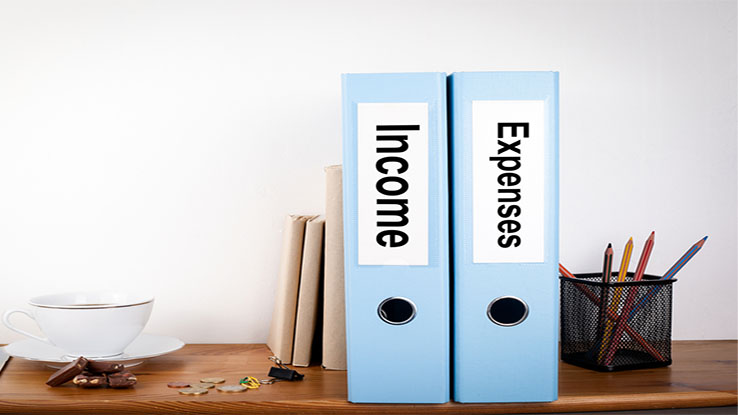Insurance coverage for business income: What contractors need to know
Nov 08, 2017 | By George E. Krauss, Donald S. Malecki & Susan Massmann
 Construction delays, especially those caused by significant storms or other catastropic events, can lead to a loss of business income and extra expenses. (Photo: Shutterstock)
Construction delays, especially those caused by significant storms or other catastropic events, can lead to a loss of business income and extra expenses. (Photo: Shutterstock)
Business income insurance covers the income of the business, therefore, it’s fundamental that there be earnings and that earnings continue to be possible. If a business is idle and likely to remain that way for a long time, there are neither present nor prospective earnings and no need for business income coverage. Construction companies and contractors may face this situation when there’s a significant slowdown in large projects.
But the mere fact that a business is not operating doesn’t necessarily eliminate the need for this coverage. If a contractor is definitely scheduled to resume operations but the property is damaged or destroyed by an insured peril, there will be a loss of income and, hence, a business income exposure. The exposure begins on the date operations were scheduled to resume. A seasonal business, such as an ice cream shop in a vacation area, is one example.
Similarly, insurance can be written for a business operator whose premises are under construction. Loss to an uncompleted building postpones the date of occupancy, and any loss of earnings from the date business operations should have begun can be insured. Contractors and their clients often deal with this situation.
Coverage can properly be written for businesses whose earnings are sufficient to meet all or part of the operating expenses but not enough to show a profit. Some construction contractors, although currently unable to produce a profit, still have a substantial exposure in the form of continuing expenses if a suspension of business occurs. Coverage is to the extent that those expenses were being earned prior to loss. But, for businesses not operating at a profit, close underwriting scrutiny is necessary.
Related

The next several years should be a positive environment for construction. But generally, more contractors fail in good times than...
Related: How businesses can minimize the impact of Harvey’s service interruptions
Some businesses must make every effort to continue operating no matter how serious the damage and regardless of the cost. For example, contractors located in the Houston, Texas, area might have been damaged during Hurricane Harvey but they have clients with projects that were unscathed. For such risks, the principal need is extra expense insurance.
These contractors, along with other businesses damaged by hurricanes and wildfires in 2017, also may not be able to avoid a temporary suspension following severe damage. To avoid long-term loss of customers they will spend substantial amounts of money to get back into operation. In some cases, a combination of business income and extra expense insurance is needed.
‘Blanket’ coverage
When a contractor has interdependent operations in two or more separately rated buildings or at more than one location and a loss at one location will curtail business at other locations, blanket business income insurance is ordinarily recommended.
Blanket coverage may also be arranged when the separate locations are independent of one another, but the principal advantage here, if any, is cost. If the average rate results in lower overall costs than would be the case with each location covered separately, then blanketing might be advised. Otherwise, the necessity of adjusting any loss on the basis of the business being done at all covered locations (for coinsurance purposes) may offset any blanketing advantage.
Blanket business income insurance should not be confused with business income from dependent properties coverage. Blanket insurance covers two or more separately rated units of the contractor’s own operations. Income from dependent property insurance covers the loss that the contractor would suffer if the operation of a key supplier, customer or leader property on which the contractor’s operations are dependent is shut down by an insured peril.
Three elements are required for coverage to apply: (1) a necessary suspension of business operations during the period of restoration, (2) a direct physical loss of or damage to property at the described premises caused by or resulting from a covered cause of loss, and (3) an actual loss of business income.
A “suspension” of business is defined as:
- The slowdown or cessation of your business activities; or
- A part or all of the described premises is rendered untenantable if coverage for Business Income including “Rental Value” or “Rental Value” applies.

Documenting the loss of business income may also be an extra expense, covered by insurance. (Photo: Shutterstock)
Categories of extra expense
Extra expense is not a defined term in many policies, but the term is usually given a specific policy meaning for coverage purposes: “necessary expenses you [the insured] incur during the period of restoration that you would not have incurred if there had been no direct physical loss or damage to property caused by or resulting from a covered cause of loss.” Most frequently the kinds of expenses for which coverage is afforded are rental of a temporary office or store, computer or communications rental equipment, and items of that kind.
Generally, policies provide coverage for two categories of extra expenses:
- Extra expense to avoid or minimize the suspension of business and to continue operations at the insured premises or at replacement premises or temporary locations. Relocation expenses and costs to equip and operate a replacement or temporary location are included. The costs to rent, move, and set up a temporary facility or obtain temporary or replacement equipment would be paid by this portion of the policy.
- Extra expense incurred to minimize suspension of business if operations cannot be continued. The hiring of additional workers or paying existing employees overtime in order to reopen the business would be covered here.
The form also provides coverage for extra expenses necessary to repair or replace property but only to the extent the amount of loss otherwise payable is reduced.
Exclusions and limitations
In most cases, business income and extra expense losses caused directly or indirectly by power or other utility service failure that do not result in a covered cause of loss are excluded. For example, a storm causes a power outage to the contractor’s premises, and computer equipment, communications services, lights and heat are not operable. Business income coverage is not triggered because there is no physical damage to the property.
The exclusion encompasses power surges related to the power failure event and defines communication services to include electronic network access and internet service.
Interference at the insured premises by strikers or others with rebuilding or replacing the property or with the resumption or continuance of business is specifically excluded as well. Because the reference is to delay by interference at the premises, an increase of loss caused by a strike elsewhere — such as one affecting material suppliers, transportation lines, or the availability of workers to work on the construction project — is covered.
Related: Protests, riots, and loss of business income
Suspension, lapse, or cancellation of any license, lease, or contract not directly caused by the suspension of operations is also excluded. Extra expenses incurred beyond the period of restoration due to suspension, lapse, or cancellation of any license, lease, or contract are not covered, either.
Who pays for accounting documentation?
Contractors may find that they’re required to provide accounting documentation to support the claim. To comply with this request from the insurer, the contractor might have additional costs for an accounting firm to accumulate the data and provide the report. These fees for accounting and other professional services would not have been incurred had there been no direct physical loss and they should be considered as insured extra expenses under the policy.
This article is an excerpt from of the Commercial Property Coverage Guide, 6th edition, published by The National Underwriter Company, Erlanger, Ky., and authored by George E. Krauss, Donald S. Malecki & Susan Massmann. For more information or to obtain a copy of the Guide, visit The National Underwriter Company website.